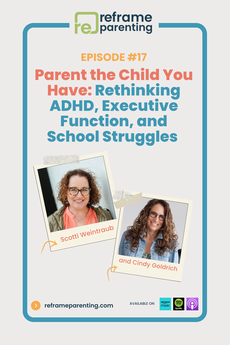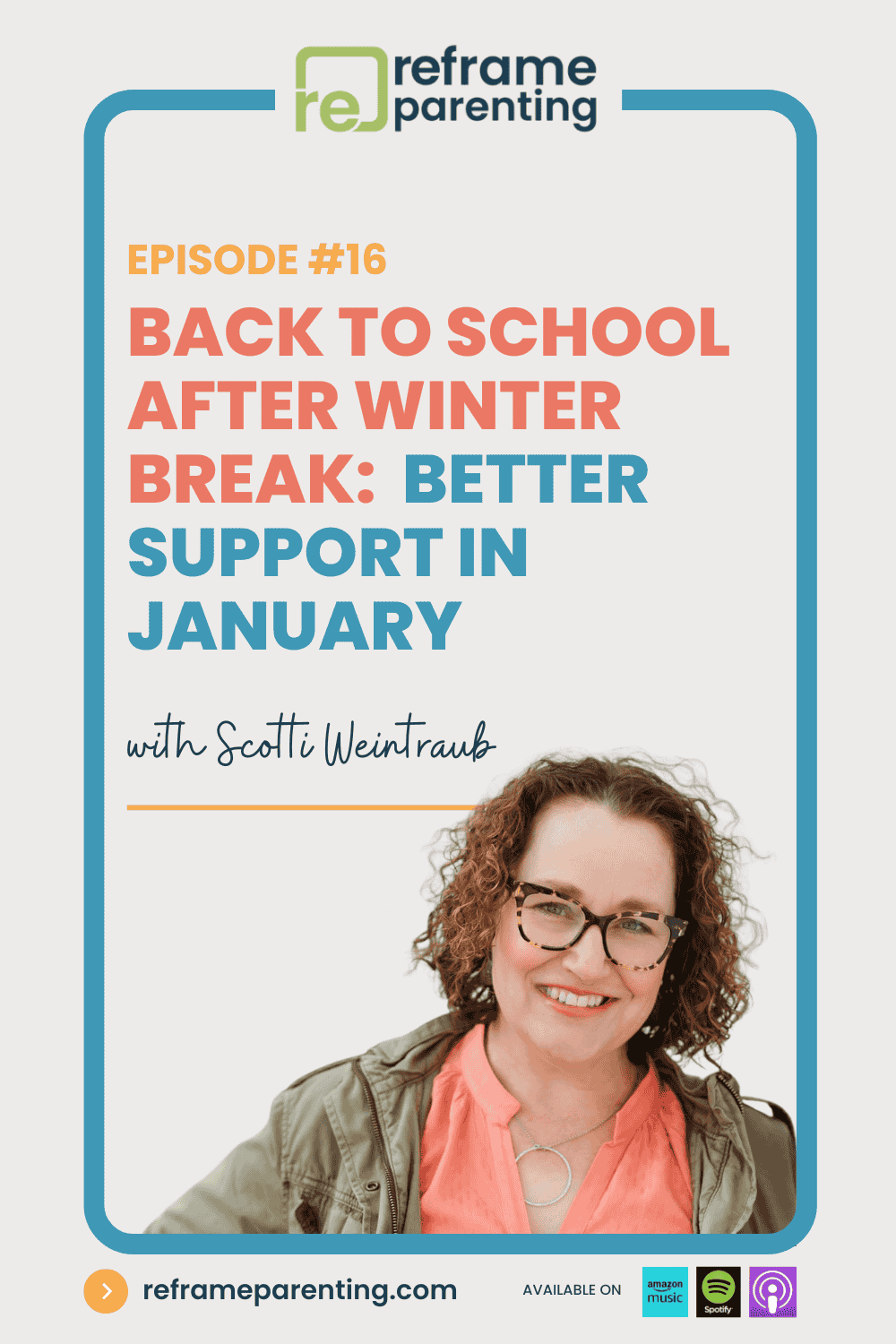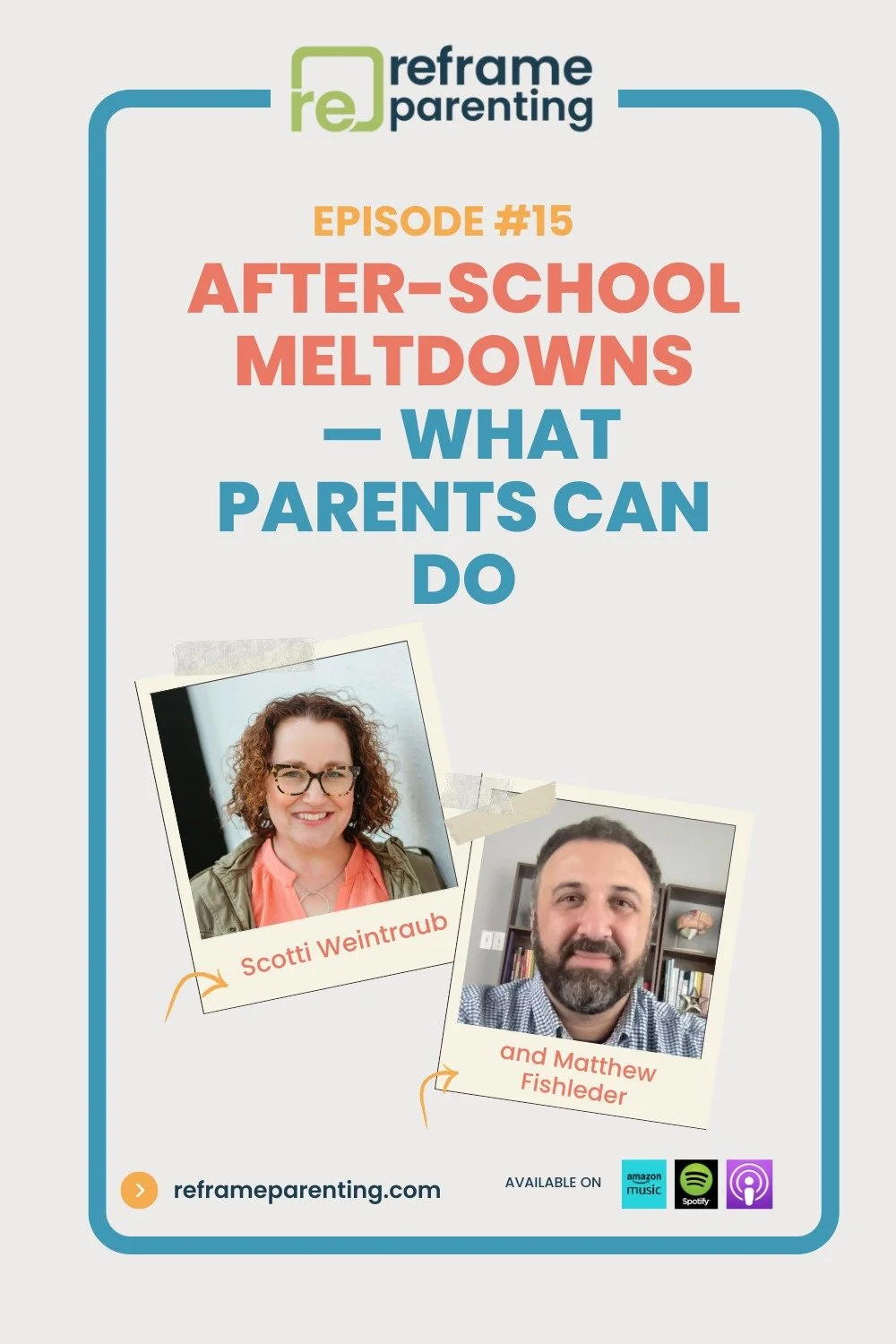7: When to Include Your Child in School Meetings
Have you ever had second thoughts about your child attend school meetings? Today, we’ll be break down how it might benefit your child and when it could be counterproductive. From assessing emotional readiness to preparing effectively, you'll gain empowering tips and reflection questions to make informed decisions that prioritize your child's well-being and self-advocacy.
Ask a Question:
Got a school question on your mind?
Submit it as a listener question for a future episodeKey Takeaways:
Be open to bringing your child with you - even outside of school
Involving your child in school meetings is a great way to foster growth in self-advocacy but depends on the child’s readiness. You can try and expose them to more and more routines, then eventually you can transition to bringing them on out-of-school events.
Check the Signs
You’d be surprised how much your kid is capable of handling! You can assess readiness by considering your child's comfort with the meeting’s topics and their ability to handle feedback.
Reading the room matters for your kids too
The meeting environment significantly impacts whether it’s suitable for your child to attend. Every child is different, and each scenario may demand a unique approach.
Readiness over Age
When considering whether to invite your child into these discussions, readiness is a more crucial factor than age. Prioritize your child's emotional well-being and readiness over expectations of age or required participation.
Hold Space for Growth
Keep communication open with your child before and after the meetings to ensure they feel included and understood. It's okay to say “not yet” if your child isn’t ready. Prioritize emotional safety over ticking a checklist.
Resources:
Book a call with me and let’s have a quick chat to learn more about how I can help parents just like you!
Got questions? Send them here and I’ll be happy to answer them.
Connect with Scotti:
Website
Instagram
Threads
LinkedIn
Ask a Question:
Got a school question on your mind?
Submit it as a listener question for a future episode
Transcript
7: When to Include Your Child in School Meetings
[00:00:00] Should I bring my child to the school meeting? That's the question I'm tackling in this first episode in a series of questions submitted by you, the listeners of Unlocking School Success. This one comes from a listener in Montana. Thank you so much for this very thoughtful question. My short and quick answer, it depends.
In this episode, we're gonna talk about how to make that decision when it might be helpful to include your child in meetings and when it's simply not the right choice. If you listen all the way to the end, I'll share some quick reflection questions you can use to help make those decisions when they come up.
So let's get into it.
Speaker: Welcome to Unlocking School Success, a podcast with the smart strategies and support parents need to help their kids thrive. I'm your host, Scotty Weintraub, parent coach, school navigator, and your go-to guide for turning School Stress and Chaos [00:01:00] into clear strategies that work. Let's get started.
Whether to bring your child to the meeting with their teacher, it's a pretty big question, and there's a reason it hits home for so many parents. On one hand, we wanna raise kids who can advocate for themselves. We want them to know what they need, ask for it, and be engaged and involved in their own education.
But on the other hand, these meetings can be stressful. Even for adults. They can be full of educational jargon, strong emotions, and even complicated dynamics. Sometimes just walking into the room makes us as parents feel nervous and overwhelmed. Imagine how that might feel for a child who already thinks they're in trouble or doesn't fully understand what's going on.
So how do you know what's right for your child? Let's talk about age, and I'm not just talking about age in terms of years, but age in terms of readiness.
I'm gonna [00:02:00] remind you that age does not always equal stage. Self-advocacy is of course a goal to work towards, but what if our child simply isn't there yet?
And it looks different for kids at different grade levels too. If we were following a traditional idea of kid advocacy, we'd assume that elementary school students need more parent support, but let's break it down a little. In elementary school, it might be less likely that kids are being asked to be part of school conversations.
The assumption may be that parents are actively involved and kids need support in these issues. For instance, a first grader may absolutely need their parents to ask questions. It may not fully understand what the meeting's about. There is no magic age where a child is ready to attend a meeting. Some high schoolers might feel intimidated by school staff or just freeze up.
Some fourth graders may be already clear on what helps them learn best. [00:03:00] The real question is, can your child handle this kind of conversation and walk away feeling good about it? Because self-advocacy is a goal. Of course, but it's not one size fits all, and pushing a child into a space that they're not ready for can potentially do more harm than good.
So here's some signs that they might be ready if they've expressed curiosity about what's being discussed. They've named what works and doesn't work for them at school. They can handle feedback without shutting down or spiraling. Some signs they might not be ready yet if they get anxious. When talking about school struggles or discussing things with adults, they feel ashamed or defensive about how they're doing or the challenges they're having, or they don't understand what a meeting is actually for or sometimes refuse to participate
whether or not your child ends up joining the meeting, a lot of what makes it feel [00:04:00] safe and stressful can be shaped ahead of time before you even walk into the meeting. So here are a few things you can do to influence the tone of the meeting before it even starts. Ask ahead of time who will be there and what the agenda is.
If it's a large team or a high stakes meeting, consider if it's the best experience for your child, especially if it's their first school meeting. Request that strengths be shared first. I know as a parent, this can be frustrating when we're focusing only on deficits or problems. So you can totally say, I'd like to start with what's going well, and that sets a tone.
Let the team know if you're considering including your child in the meeting. ask how they typically handle student involvement and listen for signs that they'll speak directly and respectfully to your child if they do attend. What are the expectations of the [00:05:00] school in terms of encouraging or requiring student participation?
Some schools push for student led meetings and those can be empowering, but only if the child is ready. So it's okay to say something like, we're working on self-advocacy, but I don't think this is the right format just yet. Let's keep them looped in in a different way. It's also completely valid to just say no or not yet.
If you know your child isn't ready or participating, might cause more harm than good. Your child's emotional safety matters more than ticking a checkbox. Here are a few reasons it might not be the right time. If your child, experiences anxiety or shutdowns when school is discussed, they've had meltdowns or emotional dysregulation during previous meetings or when teachers discuss feedback with them.
They feel embarrassed or ashamed about their academic [00:06:00] struggles. They're still building awareness of what their needs are and what helps them. Or maybe you're anticipating a tough conversation in the meeting that you feel like might be really critical or heavy. It's also true that kids with A DHD learning disabilities and other NeuroD diversities are challenges.
I get a lot and I would say disproportionate amount of negative feedback at school. So it could be that their self-esteem is fragile and hearing deficit based language might reinforce feelings of them not being good enough. And that can take a toll for those students attending a meeting that focuses on what's not working, may not build self-advocacy, and may instead chip away at their self-worth.
The goal is for your child to feel included and empowered, but that doesn't mean being in the room necessarily. Sometimes the most supportive thing you can do is hold off [00:07:00] until it's the right time. I've faced this situation many times over the years as a parent and. I'd get called into a meeting maybe with just the teacher, maybe with other school staff or admins, maybe it was an IEP meeting and they wanted and sometimes insisted that I bring my child with me.
And I understand the desire to have the student be part of the conversation, and sometimes that did make sense, but let me walk you through a few times. I decided having them involved wasn't the right fit at the time when my child already had an adversarial relationship with the teacher and didn't feel like they were being listened to.
When their anxiety was really high, and I knew this kind of demand would push them over the edge when we weren't clear what supports were needed, and I knew the meeting would include a long list of what my child had done wrong when scheduling the meeting quickly. [00:08:00] Often because of a crisis was more important than leaning into student empowerment.
And sometimes I just wanted to talk to school staff without my child. I've always tried to listen to my intuition on this when I didn't. That's when we had problems. Let me just tell you that managing your child's panic attack in the middle of an afterschool meeting is stressful, emotionally exhausting, and really a waste of everyone's time.
So if we break it down really simply, it's a good idea to bring your child to school meeting. If your child wants to attend and knows what to expect, they're emotionally ready to handle the conversation. The tone is collaborative and focused on growth. The adult in the room know how to include kids meaningfully, and it might not be helpful if your child is feeling defeated or misunderstood.
The meeting is gonna focus heavily on problems or data, or you're just worried. They'll walk out feeling [00:09:00] worse. Even if your child wants to go, it's also okay to say, let's get through this meeting and then we'll figure out together how you can be a part of the next one. If you feel like the meeting's not gonna meet the feel good for your child at the moment, criteria, you're not cutting them out, and there are many ways to follow up or involve them outside of the meeting itself.
Let me give you some examples of how you can involve your student without them being at the meeting. Before the meeting, you can always ask them open-ended questions about what's happening and get their perspective. For instance, I'll be meeting with your teacher and I would really like to hear from you what's happening, what feels really challenging for you?
What do you think might help you be more successful? Jot down their thoughts and you can share them in advance in an email to the team or just mention them in the meeting. [00:10:00] Afterwards, it's important to take time to debrief with your child too. Let them know what you talked about.
No one likes feeling as if people had been talking behind your back. So be sure and mention positive things that were said about them too. If decisions were made, let them know what those were and how they will be involved. And is there a follow up meeting? Ask them if they feel comfortable attending and talking with the teacher individually.
Or with the whole team. And be sure and include their comments and ideas in your follow-up email to school staff. Even when the decisions are being made by adults, making sure they know what's happening is really important. Now, I know what you might be saying, that it's different as students get into older grades, and my answer to this is, well, yes and no.
Yes, it's true. They're aging and with that comes more responsibility. And of course, as we [00:11:00] talked about earlier, our goal is to encourage self-advocacy. But it's also okay if they aren't there yet, if they still need parents to get involved, even into high school. It doesn't mean they will never be independent.
It just means they need a little more help or scaffolding along the way. Being mindful about why you make these decisions means you make them knowingly moving towards those goals of self-advocacy and independence.
You don't have to go along with what's expected if it doesn't feel right for your child. You are the expert on what keeps them safe and supported, no matter the age. You're allowed to hold space for them to grow into that independence and self-advocacy with support and not pressure. It's really about your child, your values, and what feels right in the moment.
And you might decide differently a few months from now or the next time a meeting comes up, and that's okay too. [00:12:00] If you're still unsure. I wanna leave you with a quick reflection exercise you can do right now.
It's just three very simple questions to ask yourself. Next time you're wondering whether or not to bring your child to that school meeting. Number one. What's my biggest hope for my child when it comes to this meeting? Okay, will the meeting work towards that goal or not? Number two, what's my biggest worry about them being in the room?
And number three, what do I think my child might say if I ask them how they feel about participating? You don't have to analyze this too much, just see what comes up and go from there. Do you need help sorting all of this out? In my one-on-one coaching, this is exactly the kind of thing we work on.
We prepare for school meetings, troubleshoot decisions just like this, and make sure you're stepping into any school room with [00:13:00] confidence and a plan. The first step is just to schedule a quick, free time to chat with me to learn more about how I held parents just like you. You can find a link to do that on my website at reframeparenting.com/workwithme.
Thanks for listening in today, and thanks so much to the listener who submitted this great question. If you have a question you'd like me to answer on a future episode, you can submit it on my website too at reframeparenting.com/podcast. Thanks again for listening. See you next time.
Speaker 2: Thanks for tuning in to Unlocking School Success. If you're finding these episodes helpful, please hit follow, leave a review, or send it to another parent who's also navigating the school maze because no one should have to figure this out alone. You'll find full show notes at reframeparenting.com/podcast and you can come say hi [00:14:00] on Instagram @ReframeParenting.
Thanks again for listening. See you next time.








